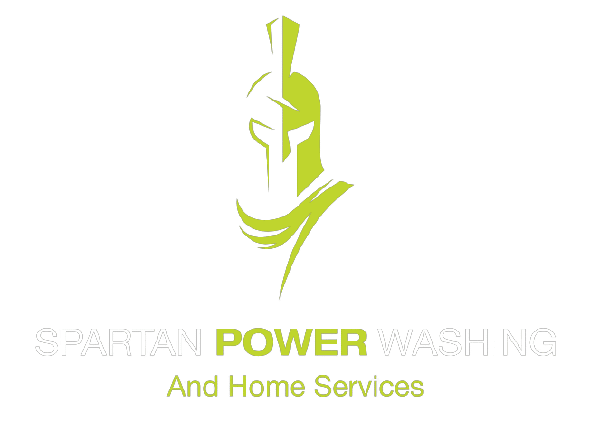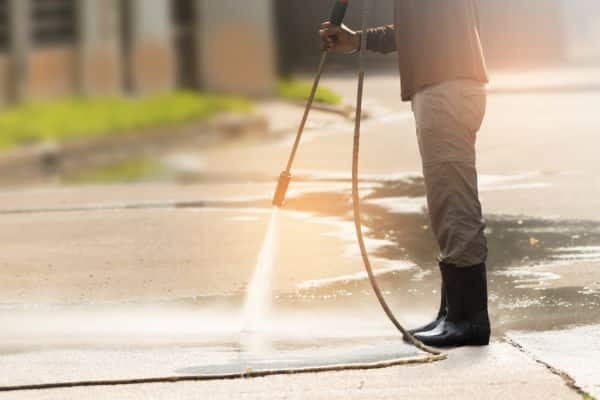Pressure washing is a great way to keep your outdoor surfaces clean and maintained. However, because pressure washing uses a high pressured water spray, it can damage certain surfaces. As such, it can be hard to be sure what surfaces are safe to pressure wash and which aren’t.
There are many surfaces that are safe to pressure wash. Below, we list three of the most common surface types that are safe to pressure wash. These surfaces are:
- Hardwood
- Concrete
- Brick
1. Hardwood
When pressure washing wood, it is important to know what kind of wood you are working with. If used incorrectly, pressure washing can etch into the wood of your outdoor surfaces and do more harm than good. Softer woods aren’t safe to pressure wash because the high pressure spray will cause damages to the wood surfaces around your home.
However, hardwood is safer to pressure wash. Hardwood is often used in decks and many pressure washing companies offer deck cleaning services. The best option when you need a deck cleaning is to hire a professional pressure washing company to ensure you’re getting the best results.
Professional pressure washing consultants will come in and assess your hardwood surfaces to ensure you’re using the right nozzle, water pressure, and angle to keep your hardwood surfaces in the best shape possible. While it is safe to use pressure washing on hardwood, caution is key whenever using a pressure washing machine.
2. Concrete
Concrete is one of the most common surface types to pressure wash. Because concrete is a strong material made up of much smaller pores, pressure washing is a great way to keep your concrete clean and clear of contaminants.
One of the main reasons pressure washing is so common for concrete surfaces is that pressure washing is great for larger surfaces. It cuts down on cleaning time and leaves your concrete looking clean and clear. The best part of using pressure washing techniques on concrete is that it cleans out the pores in your concrete to ensure that all the contaminants that make their way into your concrete are cleaned away.
Pressure washing is one of the best ways to keep your concrete in the best shape possible.
3. Brick
The last surface we’ll be talking about is brick surfaces. Brick surfaces are made up of brick and mortar. Before you start on a pressure washing project, you want to make sure that you have patched any damaged mortar joints between the bricks and give this area a week to harden before cleaning. This prevents water from getting between the bricks and causing mold to form in your walls.
Once you’re sure that the structural integrity of the brick and mortar is sound, it is safe to go about your brick cleaning project. Pressure washing gets rid of all the contaminants that build up on your brick surfaces, leaving these surfaces clean and clear.
When the cleaning project is done, it’s a good idea to add a coat of approved brick and mortar sealant to help not only protect your brick surfaces from contaminants, but to keep your surfaces safe.
Call the Experts at Spartan Power Washing and Home Services
No matter the pressure washing surface, a professional company is the best option for ensuring you’re getting the pressure washing results you crave. Call the experts at Spartan Power Washing and Home Services today to set up an appointment for your outdoor pressure washing project. We offer surface assessment to ensure you’re getting the best cleaning option possible without damaging your home.




